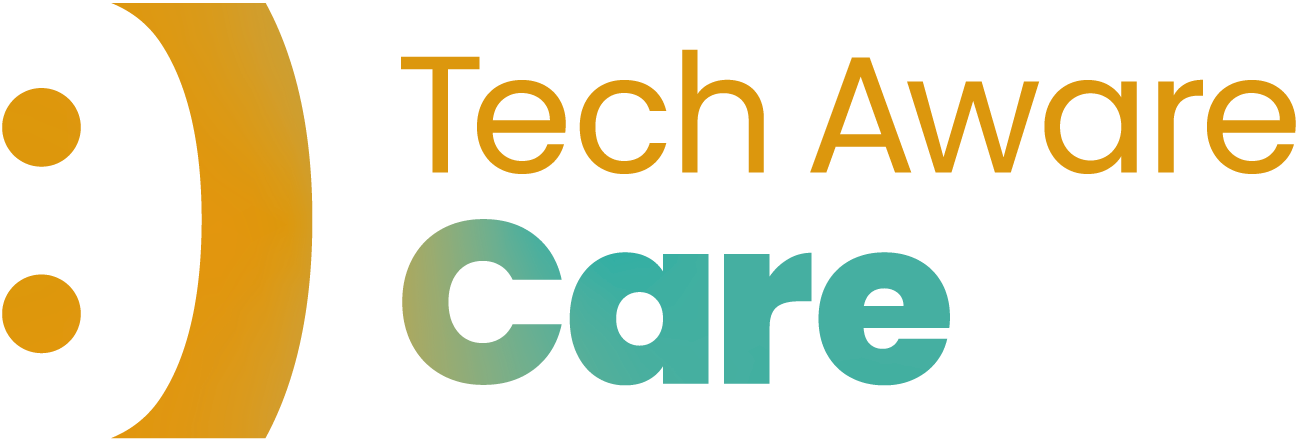Gifted & High Performers
THERAPY 2.0
Gifted, High Performer & High IQ Therapy
Therapy 2.0 Modalities:
- Psychodynamic Therapy
- ACT (Acceptance & Commitment Therapy)
- DBT skills
- Solution Focused Therapy
Therapy 2.0's Approach:
- Tech-Aware Care
- Trauma Informed Therapy
- Non-pathologizing, non-shaming
- Sex-positive
- Neurodiverse-affirming
Online therapy is available in Philadelphia, Pittsburgh and across Pennsylvania.
Are you bright, quick or gifted?
Are you a high performer, or do you struggle? How does your unique profile impact your life and overall well-being?
Gifted, high performing and high IQ people may struggle to find therapy that really fits. Does this sound like you?
It's common to struggle with finding the right therapist; we get it.
Gifted therapy, high performer therapy and high IQ therapy tends to work well with a clinician who can metaphorically 'play with ideas', match your pace and tailor therapy to your unique profile. Within gifted therapy, the client and clinician are co-collaborators who uncover, analyze, test and refine together. Successful gifted therapy is frequently a non hierarchical meeting of minds.
At Therapy 2.0, we work with gifted, high performing and high IQ emerging adults (16+), adults and seniors in Pennsylvania.
Problematic Perfectionism
Are you a perfectionist? Is your perfectionism serving your needs and supporting your goals?
Perfectionism may be (a) an adaptive mindset; (b) a maladaptive trait, (c) a barrier to efficiency, or even (d) a mental framework that orients behavior or self-identity. Simply stated,
perfectionism works until it doesn't. And when it stops working, support, insight and corrective action are helpful.
For example, are you harnessing your skills, high standards and high expectations strategically, or are you employing a habitual pattern that feels inescapable? Within therapy, together we'll explore how your perfectionism has worked. Additionally, we'll identify how it has become problematic.
Reach out when you're ready. Your high standards don't have to be a trap. There's a path forward where you can feel engaged and productive without feeling overwhelmed or stuck.
Burnout
Is burnout a concern for you? Have you worked exceptionally hard, but you now feel spent?
For people experiencing burnout, we'll jump-start healing with nervous system support. You'll get help identifying your unique burnout profile and how your mind (and body) are responding. Together we'll identify your current self-care strategies. We'll optimize based upon what's right for you.... not what "generally" works for everyone.
Additionally, if it's relevant, we'll explore themes of moral injury and
institutional betrayal. When people experience burnout, they may find their existing workplace supports feel performative or shallow. It can be deeply painful to feel under appreciated, and this awareness can intensify burnout, especially in certain professional settings.
Reach out when you're ready. Burnout doesn't have to be permanent. There's a path forward where you can take a breath... finally.
Isolation, Loneliness and Existential Concerns
For gifted and high performing people, it's common to struggle with finding truly compatible peers in childhood and adulthood. For example, in childhood, gifted people may struggle to find peers who are equally precocious. In adulthood, gifted people and high performers may struggle to find community and true camaraderie.
For gifted people and high performers, struggles with purpose, meaning and existential concerns are common as well.
In therapy, together we can target feelings of loneliness, isolation and existential concerns with philosophical and pragmatic approaches. An exploration of what it is to be lonely - what it is to be human - can elicit insight, mental stimulation and relief. Additionally, the cultivation of joy, contentedness, meaning and authentic connection are frequent goals. Therapy may include behavioral, cognitive, relational, scholarly or artistic explorations.
Loneliness, isolation and existential concerns may be a part of your gifted experience. Get support today.
"Excitability" in Gifted People
"Excitability" - or in the literature, "overexcitability" - is a common feature of giftedness; it is a heightened response and sensitivity to experience. It may include physical, sensory, intellectual, imaginal, and emotional elements. These features can be supportive strengths, or alternately, they may be barriers to well-being.
In therapy, "excitability" profiles can be successfully harnessed to support treatment. For example, someone prone to imaginal excitability - marked by a rich, inner world of fantasy, play, imagery and metaphor - may respond to free-association techniques. They may be equally predisposed to complex, multilayered defenses, networked patterns of rumination, or even maladaptive fantasy. At times, these responses can be understood as nuanced avoidance strategies and can be explored in therapy.
Begin exploring your profile today.
Twice Exceptional
Gifted people who present with co-occurring neurodevelopmental diagnoses are considered "twice exceptional", or 2e. This term identifies people who may be considered gifted in one domain (e.g., IQ), yet potentially challenged in another (e.g., ADHD, autism, dyslexia, and more).
Twice exceptional people tend to be system outliers. They may struggle to receive appropriate supports in their educational and social settings. The long-term outcomes of this lack of goodness of fit cannot be understated. Deep exploration of these experiences - and their downstream impacts - is a crucially important therapeutic target.
Why should I choose neurodiverse-affirming therapy?
Why should you choose a neurodiverse-affirming therapy practice?
- An open & inquisitive approach: Neurodiverse-affirming therapy doesn’t assume a standard or default mindset. This open-ended, inquisitive stance critically challenges key assumptions, if/when necessary. This supports insight and growth.
- A focus on environments, systems and contexts: Neurodiverse people may feel at odds with their environments. Consequently, neurodiverse-affirming therapy resituates your presenting concerns within greater systemic contexts. This too may elicit novel insight(s). Most basically, it supports self-compassion.
- Strengths-focused: When people feel different, it can be important to find and lead with strengths. Neurodiverse-affirming therapy uncovers and helps you supercharge what you do well and what you're proud of. This, quite clearly, can have significant positive therapeutic benefits!
Ready to schedule? We're here for you.
Gifted & High Performers
THERAPY 2.0
Gifted, High Performer & High IQ Therapy
Are you bright, quick or gifted? How does your unique profile impact your life and overall well-being?
-
Welcome
Gifted, high performing and high IQ people may struggle to find therapy that really fits. Does this sound like you?
It's common to struggle with finding the right therapist; we get it.
Gifted therapy, high performer therapy and high IQ therapy tends to work well with a clinician who can metaphorically 'play with ideas', match your pace and tailor therapy to your unique profile. Within gifted therapy, the client and clinician are co-collaborators who uncover, analyze, test and refine together. Successful gifted therapy is frequently a non hierarchical meeting of minds.
At Therapy 2.0, we work with gifted, high performing and high IQ emerging adults (16+), adults and seniors in Pennsylvania.
-
Therapy 2.0 Modalities
- Psychodynamic Therapy
- ACT (Acceptance & Commitment Therapy)
- Solution Focused Therapy
- DBT skills
-
Therapy 2.0 Approach
- Tech-Aware Care
- Trauma Informed Therapy
- Non-pathologizing, non-shaming
- Sex-positive
- Neurodiverse-affirming
Online therapy is available in Philadelphia, Pittsburgh and across Pennsylvania.
Jump to....
THERAPY 2.0: GIFTEDNESS
Problematic Perfectionism
Are you a perfectionist? Is your perfectionism serving your needs and supporting your goals?
Perfectionism may be (a) an adaptive mindset; (b) a maladaptive trait, (c) a barrier to efficiency, or even (d) a mental framework that orients behavior or self-identity. Simply stated, perfectionism works until it doesn't. And when it stops working, support, insight and corrective action are helpful.
For example, are you harnessing your skills, high standards and high expectations strategically, or are you employing a habitual pattern that feels inescapable? Within therapy, together we'll explore how your perfectionism has worked. Additionally, we'll identify how it has become problematic.
Reach out when you're ready. Your high standards don't have to be a trap. There's a path forward where you can feel engaged and productive without feeling overwhelmed or stuck.
Click here to schedule your free 15 minute consult.
THERAPY 2.0: GIFTEDNESS
Burnout
Is burnout a concern for you? Have you worked exceptionally hard, but you now feel spent?
For people experiencing burnout, we'll jump-start healing with nervous system support. You'll get help identifying your unique burnout profile and how your mind (and body) are responding. Together we'll identify your current self-care strategies. We'll optimize based upon what's right for you.... not what "generally" works for everyone.
Additionally, if it's relevant, we'll explore themes of moral injury and
institutional betrayal. When people experience burnout, they may find their existing workplace supports feel performative or shallow. It can be deeply painful to feel under appreciated, and this awareness can intensify burnout, especially in certain professional settings.
Reach out when you're ready. Burnout doesn't have to be permanent. There's a path forward where you can take a breath... finally.
Click here to schedule your free 15 minute consult.
THERAPY 2.0: GIFTEDNESS
"Excitability"
"Excitability" - or in the literature, "overexcitability" - is a common feature of giftedness; it is a heightened response and sensitivity to experience. It may include physical, sensory, intellectual, imaginal, and emotional elements. These features can be supportive strengths, or alternately, they may be barriers to well-being.
In therapy, "excitability" profiles can be successfully harnessed to support treatment. For example, someone prone to imaginal excitability - marked by a rich, inner world of fantasy, play, imagery and metaphor - may respond to free-association techniques. They may be equally predisposed to complex, multilayered defenses, networked patterns of rumination, or even maladaptive fantasy. At times, these responses can be understood as nuanced avoidance strategies and can be explored in therapy.
Begin exploring your profile today.
Click here to schedule your free 15 minute consult.
THERAPY 2.0: GIFTEDNESS
Twice Exceptional
Gifted people who present with co-occurring neurodevelopmental diagnoses are considered "twice exceptional", or 2e. This term identifies people who may be considered gifted in one domain (e.g., IQ), yet potentially challenged in another (e.g., ADHD, autism, dyslexia, and more).
Twice exceptional people tend to be system outliers. They may struggle to receive appropriate supports in their educational and social settings. The long-term outcomes of this lack of goodness of fit cannot be understated. Deep exploration of these experiences - and their downstream impacts - is a crucially important therapeutic target.
Click here to schedule your free 15 minute consult.
THERAPY 2.0: GIFTEDNESS
Loneliness, Isolation and Existential Concerns
For gifted and high performing people, it's common to struggle with finding truly compatible peers in childhood and adulthood. For example, in childhood, gifted people may struggle to find peers who are equally precocious. In adulthood, gifted people and high performers may struggle to find community and true camaraderie.
For gifted people and high performers, struggles with purpose, meaning and existential concerns are common as well.
In therapy, together we can target feelings of loneliness, isolation and existential concerns with philosophical and pragmatic approaches. An exploration of what it is to be lonely - what it is to be human - can elicit insight, mental stimulation and relief. Additionally, the cultivation of joy, contentedness, meaning and authentic connection are frequent goals. Therapy may include behavioral, cognitive, relational, scholarly or artistic explorations.
Loneliness, isolation and existential concerns may be a part of your gifted experience. Get support today.
Click here to schedule your free 15 minute consult
THERAPY 2.0: GIFTEDNESS
Neurodiverse-Affirming Therapy
Why should you choose a neurodiverse-affirming therapy practice?
- An open & inquisitive approach: Neurodiverse-affirming therapy doesn’t assume a standard or default mindset. This open-ended, inquisitive stance critically challenges key assumptions, if/when necessary. This supports insight and growth.
- A focus on environments, systems and contexts: Neurodiverse people may feel at odds with their environments. Consequently, neurodiverse-affirming therapy resituates your presenting concerns within greater systemic contexts. This too may elicit novel insight(s). Most basically, it supports self-compassion.
- Strengths-focused: When people feel different, it can be important to find and lead with strengths. Neurodiverse-affirming therapy uncovers and helps you supercharge what you do well and what you're proud of. This, quite clearly, can have significant positive therapeutic benefits!
Is your tech use impactful?
At Therapy 2.0, we're pioneer providers of therapy and tools for better tech-era living. Deep dive into our science-backed, specialist expertise:
Ready for next steps?
Schedule your free 15 minute consultation or your first appointment.
Is your tech use impactful?
At Therapy 2.0, we're pioneer providers of therapy and tools for better tech-era living. Deep dive into our science-backed, specialist expertise:
Ready for next steps?
Schedule your free 15 minute consultation or your first appointment.




